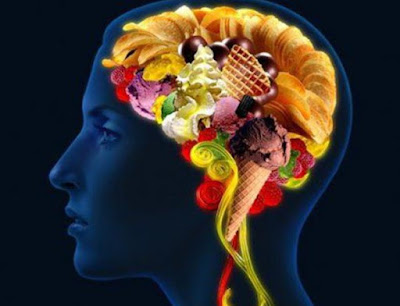Eat right foods to feel better!
This article is written by Dr. Vibhusha Jambhekar (Nutrition consultant)
For
years, we have been associating what we eat with how we feel. We associate
sweet foods to celebrate those special moments, we crave for an extra cup of
coffee after a busy, tiring day, a spoonful of sugar with milk at night helps
us sleep better, spicy, fried finger foods make the gossip even more
interesting at a sleepover etc. Our food and the nutrients in food have been
long associated with how we feel and how efficiently our brain functions. Still,
we are oblivious of the fact that, our food and what we eat are interdependent.
Our food choices (good or bad) can have an impact on how we feel and how
efficiently our brain functions and vice versa.
Research
has shown that,
1.
Stress lowers our body’s
ability to fight disease and infection.
2.
Depression can create aches,
pains and digestive disease.
3.
Self-hatred can trigger eating
disorders.
By taking a psychological perspective when it
comes to what we choose to eat – how fast or slow we eat, why we eat, when we
eat and how much we eat – we can shift ourselves away from unwanted eating
habits, feelings of stress, or constriction in life, and create instead a
positive and healthy relationship with food, life, and ourselves. A new
branch of nutrition called Nutritional Psychology has now emerged
which suggests that, Mind-Body Nutrition, has the power
to heal and nourish us so we can flourish in our lives.
Research conducted by the
National Alliance on Mental Illnesses suggests that, 1 in 5 adults experiences
a mental health condition every year. 1 in 17 lives with a serious mental
illness such as schizophrenia or bipolar disorder. The top 5 mental illnesses
people face are anxiety, depression, schizophrenia, obsessive compulsive
disorder and ADHD.
A mental health condition
isn’t the result of one event. Research suggests multiple, linking causes.
Genetics, environment, lifestyle, food habits, a stressful job or home life
influence whether someone develops a mental health condition. However, latest
research in the field of nutrition suggests that, there are several ways in
which our food helps us keep mental illnesses at bay.
It is now known that many mental health conditions are caused
by inflammation in the brain which
ultimately causes our brain cells to die. This is associated with a lack of
nutrients from our food such as magnesium, omega-3 fatty acids, probiotics,
vitamins and minerals that are all essential for the optimum functioning of
our brain.
1. Calcium, Magnesium
Calcium and magnesium are called nature’s
tranquillizers. Magnesium and calcium are required for proper transmission of
signals all over the body. They also govern what substances to pass across the
blood brain barrier, they also govern the synthesis of anti-stress hormones.
2. Tryptophan
Tryptophan and few other essential amino
acids regulate the synthesis of neurotransmitters dopamine, epinephrine,
serotonin etc. One of the more important roles
for amino acids is the manufacture of neurotransmitters, which affect your
moods and the overall function of your nervous system.
3. B vitamins
B vitamins are required for concentration,
energy generation. B vitamins are referred as anti-stress vitamins because they
increase your tolerance to stress.
4. Omega 3
Omega 3 prevents inflammation in the brain
thereby protecting brain cells. It is a component of the blood brain barrier
which prevents entry of toxic chemicals in the brain.
5. Junk food
A diet high in saturated fats and refined sugars has a negative
impact on brain proteins that are important in depression: proteins called
neurotrophins, which protect the brain against oxidative stress and promote the
growth of new brain cells. In fact, a study has shown a clear relationship
between the quality of older adult’s diets and the size of their hippocampus – a section of the brain that is central to learning,
memory and mental health and that relies on neurotrophins to grow new cells.
There also seems to be an impact of saturated fat on the stress response
system, which is also important in both depression and anxiety.
Blood brain barrier:
The brain has a protective
mechanism -- the blood-brain barrier -- that prevents or limits dangerous
substances from reaching the brain cells and affects how nutrients enter the
brain. Only selected substances like sugars, amino acids, fatty acids, water
can enter the brain. Chronic inflammation because of infections, lack of
essential fatty acids in diet, stress, lack of exercise, over consumption of
sugary foods, foods high in saturated fat can make the barrier leaky allowing
transport of toxic chemicals. Consuming whole foods, foods rich in b vitamins,
calcium, magnesium, omega 3 fatty acids helps keep the barrier strong!
In the following article, I will be writing about which foods
help our brain function and help us feel better!







Comments
Post a Comment